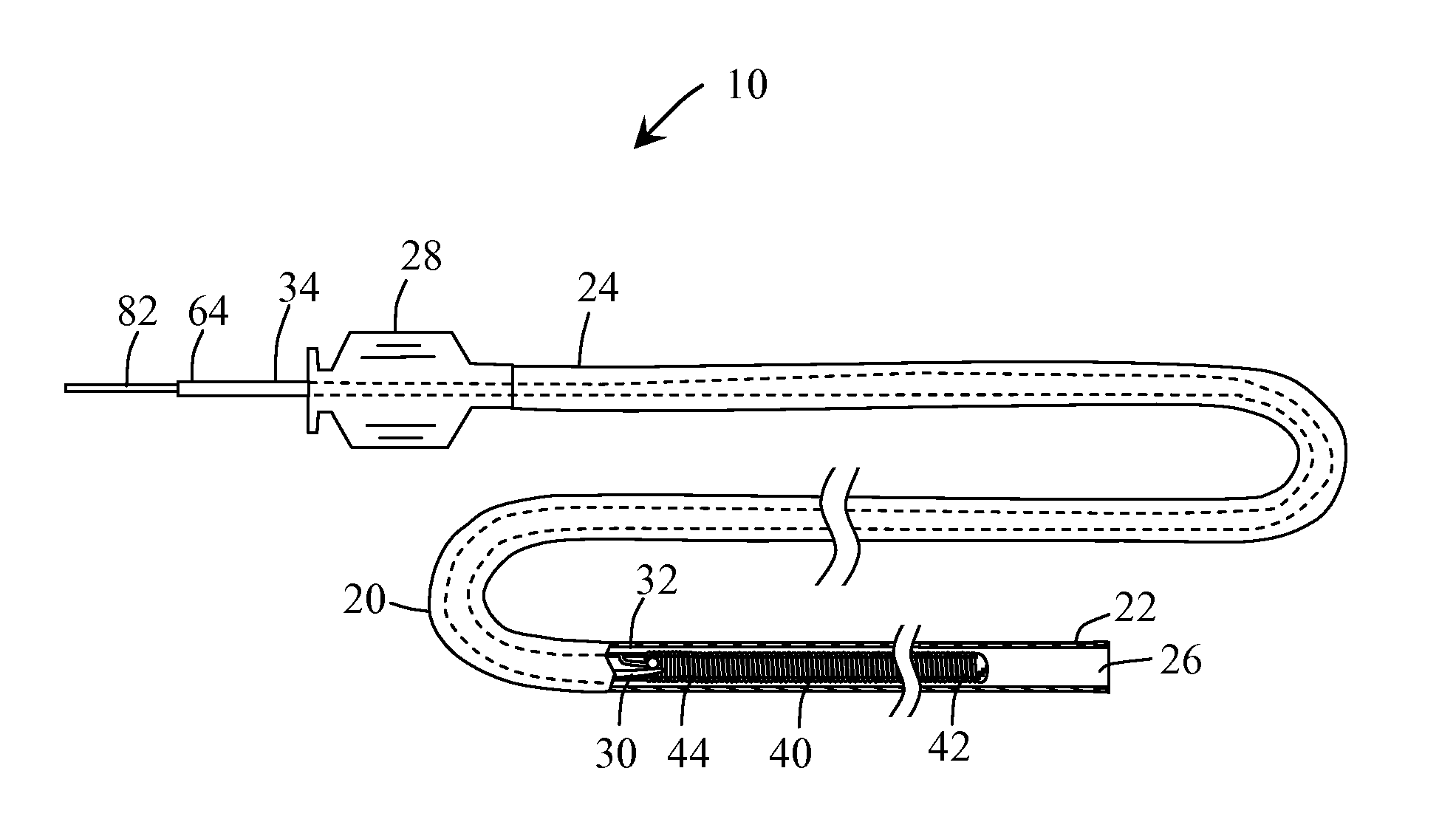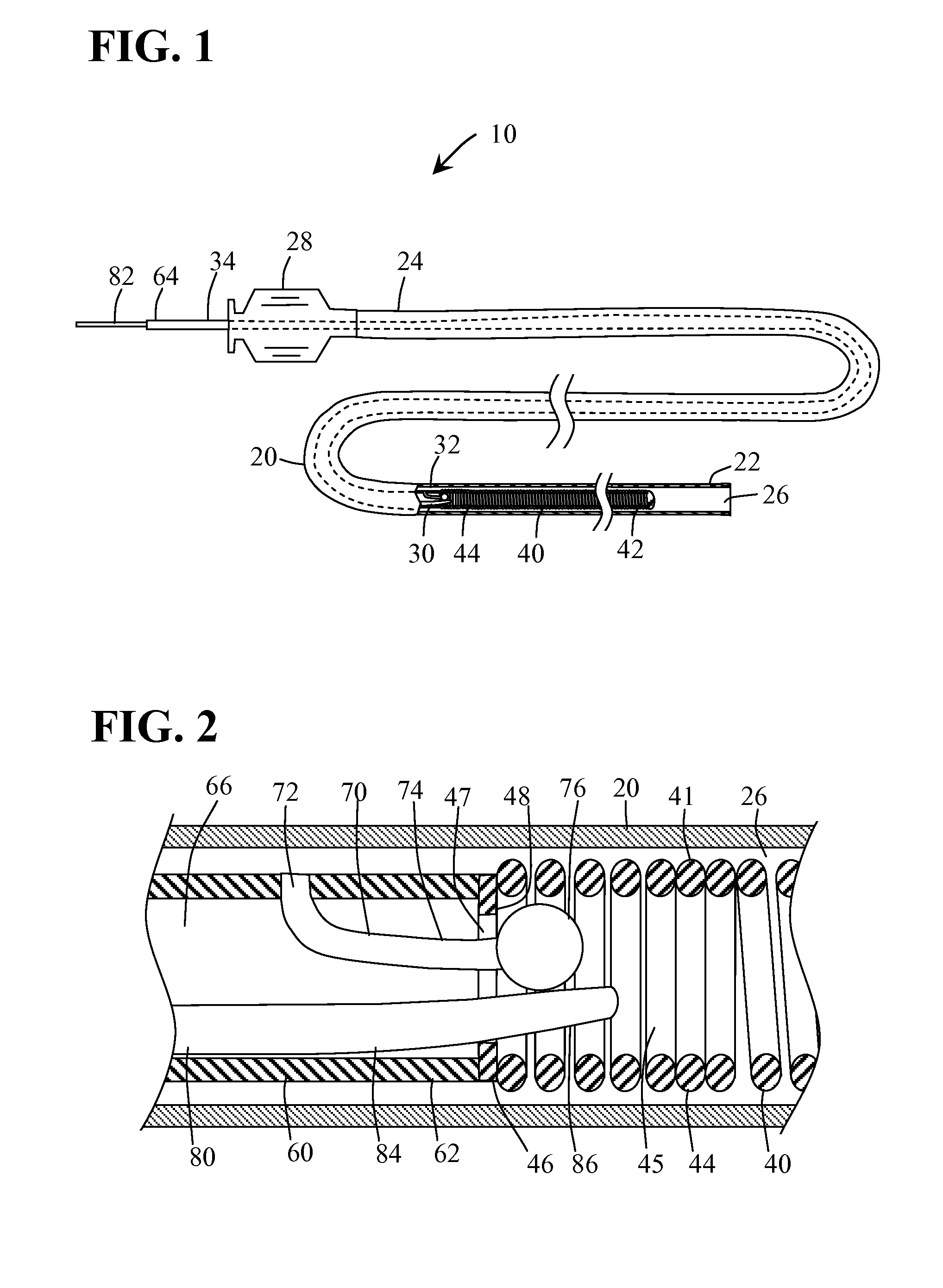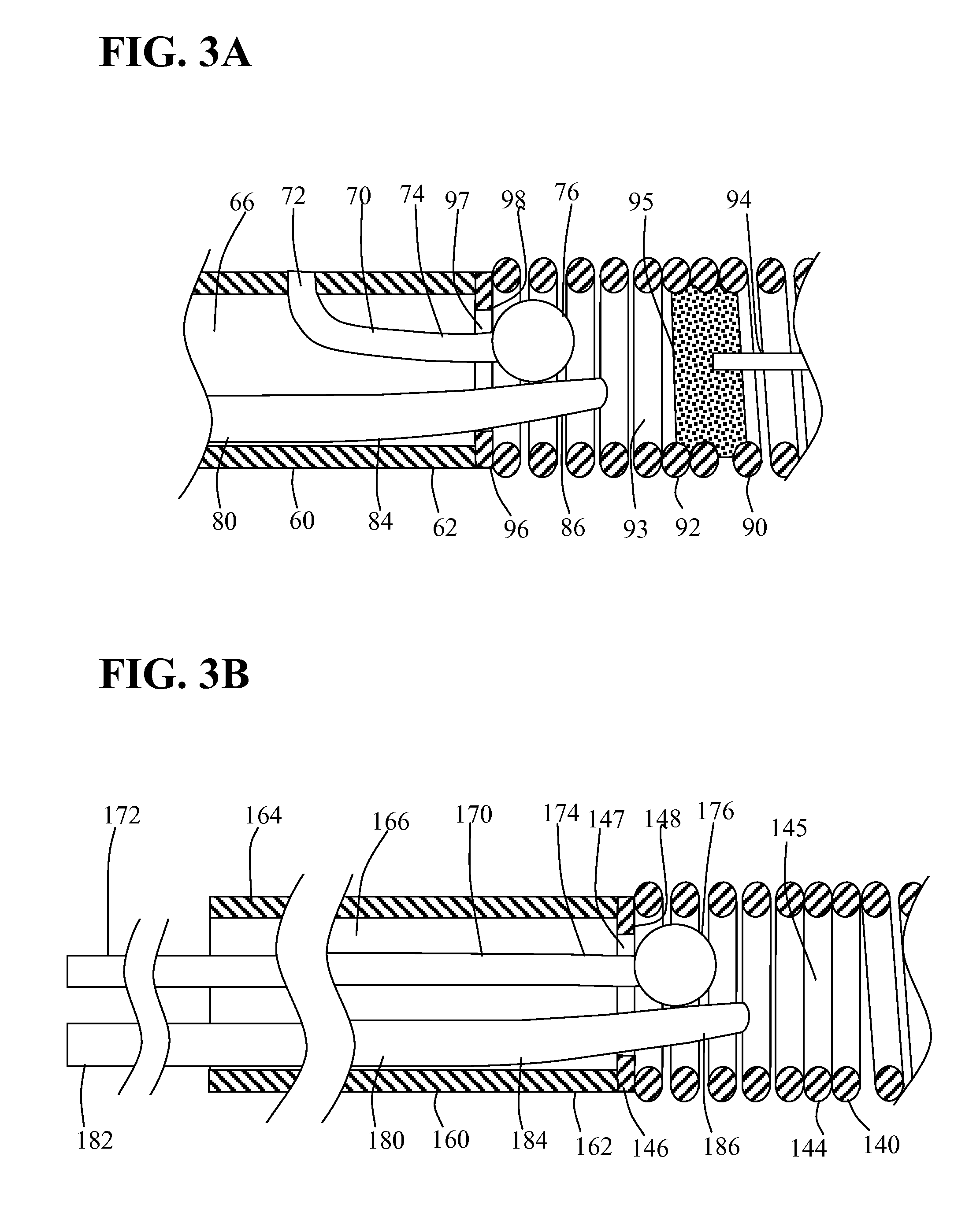Detachable Coil Release System and Handle System
a release system and detachable coil technology, applied in the field of detachable coil release system and handle system, can solve the problems of difficult catheter guide through the vasculature of the body, difficult to disengage the enlarged bead from the keyway, and little control over the exact placement of the coil
- Summary
- Abstract
- Description
- Claims
- Application Information
AI Technical Summary
Benefits of technology
Problems solved by technology
Method used
Image
Examples
first embodiment
[0084]Several embodiments of the proximal region 256 of delivery member 250 are shown in FIGS. 10A through 10C. FIG. 10A illustrates proximal region 256 of delivery member 250 in which release member 280 is shown positioned within lumen 257. Release member 280 extends proximally from coil 266 such that release member proximal end 282 exits lumen 257.
second embodiment
[0085] proximal region 256 of delivery member 250 includes a shaft portion 288 coupled to the proximal end of coil 266 as shown in FIG. 10B. Shaft portion 288 preferably takes the form of a hypotube having a stiffness which is greater than that of the distal region of delivery member 250. Lumen 257 of delivery member 250 is contiguous with lumen 289 of shaft portion 288. In this embodiment, release member 280 extends proximally from coil 266 and through the lumen of shaft portion 288 such that release member proximal end 282 exits lumen 257.
third embodiment
[0086]FIG. 10C illustrates the proximal region 256 of delivery member 250 which includes shaft portion 290 coupled to the proximal end of coil 266. Shaft portion 290 preferably takes the form of a hypotube having a through lumen 291 and a stiffness which is greater than that of the distal region of delivery member 250. Coupled to the proximal end of shaft portion 290 is release member coil 292 having distal end 293, proximal end 294 and lumen 295. Distal end 293 is fixedly coupled to the proximal end of shaft 290 preferably by welding however other joining methods may be suitable. Release member 280 extends proximally from coil 266 through lumen 291 of shaft portion 290 and into lumen 295 of release member coil 292. The proximal end 282 of release member 280 is fixedly coupled to release member coil proximal end 294 by joint member 296. Joint member 296 preferably takes to form of a weld joint; however, other joining techniques such as solder, adhesives or mechanical interlocks may ...
PUM
 Login to View More
Login to View More Abstract
Description
Claims
Application Information
 Login to View More
Login to View More - R&D
- Intellectual Property
- Life Sciences
- Materials
- Tech Scout
- Unparalleled Data Quality
- Higher Quality Content
- 60% Fewer Hallucinations
Browse by: Latest US Patents, China's latest patents, Technical Efficacy Thesaurus, Application Domain, Technology Topic, Popular Technical Reports.
© 2025 PatSnap. All rights reserved.Legal|Privacy policy|Modern Slavery Act Transparency Statement|Sitemap|About US| Contact US: help@patsnap.com



